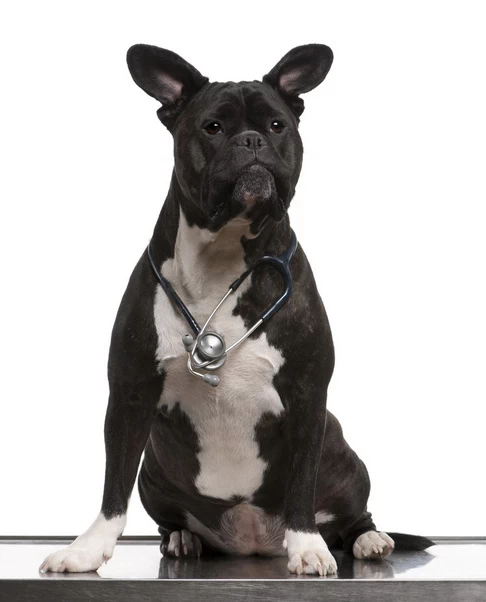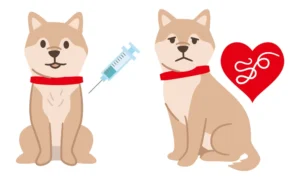
Heartworm Prevention and Testing
What is Heartworm Disease?
Heartworm disease is caused by a parasitic worm called Dirofilaria immitis. As scary as it sounds, heartworms can be transmitted through the bite of an infected mosquito. Once inside, the larvae travel through the bloodstream and eventually settle in the heart, lungs, and surrounding blood vessels, causing serious health issues.
Without proper preventive measures, heartworm disease can lead to heart failure, lung disease, and even death in dogs and other pets. It’s especially concerning for us in regions where mosquitoes are abundant, like right here in California.
But don’t worry! At Nohl Ranch Animal Hospital, we’re committed to helping keep your pets safe from heartworm disease. We have both preventive treatments and regular testing to ensure early detection and prevention.

The Importance of Prevention
One of the best things you can do for your pet is to prevent heartworm disease before it happens. And trust me, prevention is WAY easier than treating the disease once your pet is infected. The American Heartworm Society (AHS) recommends giving your pets year-round heartworm prevention medication. These medications are highly effective when given as directed, ensuring that heartworm larvae don’t have the chance to develop into adult worms inside your pet’s body.
The good news is that we offer several safe and effective heartworm preventives at Nohl Ranch Animal Hospital. Some options come in monthly tablets, topical treatments, or even long-acting injections that protect your pet for six months or a year.
Here’s a fun fact: The macrocyclic lactone class of drugs is used for heartworm prevention. These are safe for pets and protect against various stages of heartworm larvae. Administering these preventives regularly will protect your furry friends from heartworm infection all year long.
Why Year-Round Prevention Matters
I know what you’re thinking: “Do I really need to give my pet heartworm prevention during the winter months when mosquitoes aren’t around?” And the answer is YES!
Heartworm disease can occur at any time of the year. In areas with mild winters (like California), mosquitoes can survive even in cooler months. Also, mosquitoes can be found indoors, and your pet is never completely safe from them. So, it’s best to keep them protected with year-round prevention.
Risks of Spaying and Neutering
Like any surgery, spaying and neutering do come with some risks. However, these risks are minimal, and most pets recover quickly with proper care. Let’s take a look at what to watch for.
Anesthesia Concerns
Anesthesia is required for spaying and neutering. Although rare, there can be complications related to anesthesia, such as allergic reactions or difficulty breathing. However, your veterinarian will take every precaution to minimize these risks. The benefits of the procedure far outweigh these minimal risks.
Surgical Complications
While spaying and neutering are common surgeries, there’s always a small chance of complications. These could include bleeding or infection at the incision site. But don’t worry—our skilled veterinarians at Nohl Ranch Animal Hospital take every measure to ensure your pet’s safety.
Weight Gain and Behavior Changes
Some pets tend to gain weight after being spayed or neutered. This happens because their metabolism can slow down a bit. It’s important to monitor their diet and ensure they get enough exercise to stay in shape. On the flip side, neutering can sometimes cause behavioral changes. While many pets become calmer, some may become a little more laid-back than usual.
How to Prevent Heartworms
- Start early: Puppies should start heartworm prevention at 8 weeks of age. This gives them the best start to a healthy, heartworm-free life.
- Stick to the schedule: Consistent dosing is key. Even missing one dose can put your pet at risk of infection. Make sure to mark your calendar, set phone reminders, or ask us about injectable options if you’re worried about missing doses.
- Use mosquito control: Reducing your pet’s exposure to mosquitoes is a good complement to heartworm prevention. This can be done by avoiding outdoor activities at dusk and dawn, which are peak mosquito times, and using pet-safe repellents.
- Annual testing: Regardless of how well you stick to prevention, your pet should be tested annually for heartworms. Sometimes, even with the best care, infections can still happen, and we want to catch those early.
Heartworm Testing at Nohl Ranch Animal Hospital
Testing for heartworms is a simple and effective way to ensure your pet stays healthy. At Nohl Ranch Animal Hospital, we follow the AHS guidelines, which recommend annual heartworm testing for dogs. If your dog is over seven months old and has never been tested, it’s time to schedule their heartworm test!
Here’s how the test works:
- Antigen Test: This blood test detects the presence of heartworm proteins (antigens) in your pet’s bloodstream. It’s a fast and highly accurate way to determine whether your pet has adult heartworms.
- Microfilaria Test: This test looks for baby heartworms (microfilariae) circulating in the blood. Microfilariae are produced by adult female heartworms and are picked up by mosquitoes to continue the cycle of infection.
If your pet’s test comes back positive, don’t panic! Dr. Louka and our team will walk you through the treatment process. While treating heartworm disease can be challenging, the earlier it’s caught, the better the outcome for your pet.
For additional information or to schedule your pet’s Check-up, please call Us. Provide the Coupon when booking your appointment to receive Discount!
At Nohl Ranch Animal Hospital, We always strive for your Pet health mentally and physically.
For More Information, Please Call us at (714)-921-2495 Or Make an Appointment Now!
Nohl Ranch Animal Hospital has been serving pets in “Orange“, “Anaheim“,
“Santa Ana“, “Fullerton” and “Tustin” for more than “15” years.
Join Our Happy Clients From here Contact Us…
We’ll be more than happy to answer all your questions and concerns.


